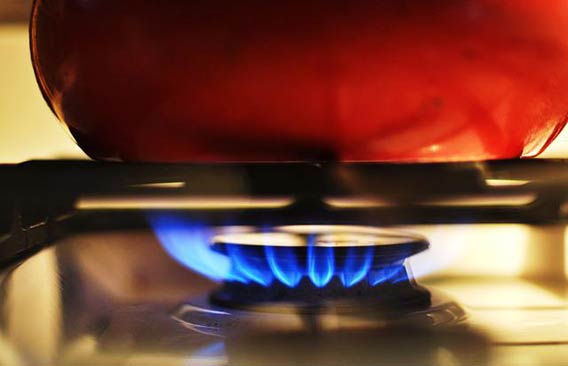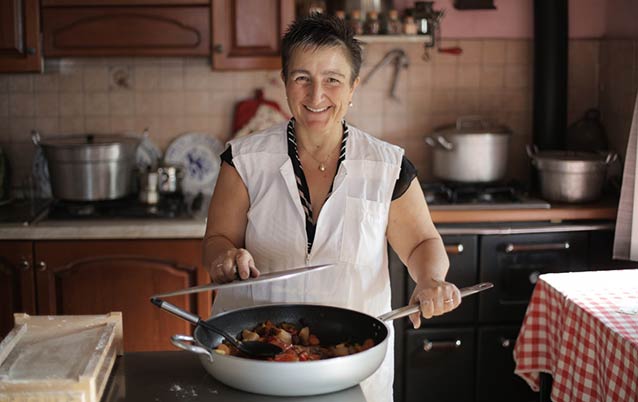One of the most important decisions you will have to make when it comes to outfitting your vessel for cruising is the type of cookstove that you install on the boat.
The vast majority of cruisers these days choose to cook with a propane stove. But did you know that it’s becoming more popular every day for boaters to switch to electric induction stoves for onboard cooking?
In this article, we are going to compare the advantages and disadvantages of electric and propane stoves on boats.
If you are considering buying a new stove for your vessel, or if you are simply curious about cooking at sea, keep reading. We will cover everything that you need to know to make the best decision for your own boat.
Contents
Introduction to Propane Stoves
Propane remains the most popular mode of cooking for boaters today, and it’s easy to see why. Propane is cheap and easy to find, it burns clean, and it’s been a reliable source of cooking fuel for a long time.
In addition, propane is a highly condensed fuel, so even a small tank of propane goes a long way. Sometimes, it’s possible to cook for more than a month on just one small tank of propane.
On the other hand, propane has its clear downsides, and in some cases, propane can be downright dangerous!
Last year, I watched a 40-foot motor vessel erupt in flames and sink just a short distance from my home after the propane tank connected to their cookstove exploded unexpectedly during a bumpy passage.
It’s easy to forget the dangers of propane since so many boaters use it for cooking, but fires caused by a propane-related accident remain one of the most common causes of emergencies on boats both at sea and at the marina.
Related: Cooking in a Kayak and Recipes
Introduction to Electric Induction Stoves
Imagine sailing all over the world without ever having to worry about finding gas for your stove. With recent advances in technology, it’s now possible to sail indefinitely with your cooking energy needs met entirely by wind, solar, and other renewable sources thanks to marine electric stoves. With an electric stove, you will never run out of fuel as long as you have electricity.
This may sound like a dream, but like anything on a boat, electric stoves come with a major compromise. Although there have been significant improvements in efficiency in recent years, induction stoves still consume far more electricity than most smaller boats are capable of providing without draining the battery bank.
That means that for most small boaters, unless you want to run the engine to charge the batteries while you cook, electric stoves are out of the picture.
On vessels equipped with a serious battery bank, however, electric stoves are becoming more popular than ever. They make even more sense of vessels that use electric propulsion, since the same power bank that powers the engine can be used to cook food.
Advantages and Disadvantages of Cooking With Propane

Propane works great for cooking on many vessels, but it has clear disadvantages, especially when it comes to safety. In this section, we will look at some reasons for and against choosing a propane stove for your boat.
Pros:
- The initial purchase price for a propane stove is much lower than for a marine electric stove.
- Propane is a popular source of fuel, so it’s easy to find in ports all over the world.
- Propane lasts a long time, so you can get many hours of cooking, even from a small tank of propane.
- Propane stoves have been used by boaters for many decades, proving that they are reliable for use at sea.
- Propane tends to cook food hot and fast, which minimizes the cooking time required to prepare meals.
Cons:
- The most obvious disadvantage to propane is that it can be extremely hazardous. Propane is explosive, and since it’s heavier than air, any leaks will end up resting in the bilge instead of dissipating in the air. Propane fires are a leading cause of vessels sinking.
- Propane stoves can occasionally break down in a marine environment, sometimes when you need them most.
- Propane stoves can be dangerous to use in a small enclosed cabin.
- Unlike with electric stoves, if you cook with propane you have to hunt down more fuel every month or two to keep cooking. It’s possible to run out on a long passage.
- Since many countries use different types of tanks and connections, it can be difficult to find the right propane tank adapter in some foreign ports.
- Propane stoves support the fossil fuel industry.
Advantages and Disadvantages of Cooking With Electricity
As more boaters make the switch to using electric stoves for cooking, it’s important to understand the pros and cons to this type of cooking. Let’s take a look at some of the advantages and disadvantages of cooking with an electric stove at sea.
Pros:
- Electric stoves are emission-free. Cooking with an electric stove can be carbon neutral if your electricity is sourced from onboard renewables such as solar and wind.
- Electric stoves don’t require any fuel aside from electricity. You don’t have to worry about filling your propane tanks or finding fuel line adapters in foreign ports.
- Since you won’t have to buy fuel, electric stoves are free to run if you generate your own electricity onboard.
- Electric induction stoves aren’t explosive like propane or CNG, so you don’t have to worry about the same fire hazards as you do with other types of cookstoves.
- Electric stoves can do just as good a job cooking food as propane.
Cons:
- The initial purchase price of a marine electric stove is extremely high compared to other stoves, even when you account for money saved in fuel.
- Electric stoves require a large amount of electricity to run, so they don’t make sense on small vessels with a minimal power bank. If your electrical system fails, it will be impossible to cook.
- It can be hard to find replacement parts in many ports since electric stoves have not yet reached the same popularity level as the alternatives.
What are the Alternatives to Propane and Electric Stoves for My Boat?
Some boaters may find that neither propane nor electric stoves are an ideal fit for them. Fortunately, there are a variety of other options available for cooking onboard your boat. In this section, we will explore some of the most popular alternatives to propane and electric cooking at sea.
After propane, the second most popular type of fuel for cooking at sea is denatured alcohol. This is similar to the alcohol that you drink, but it has additives to prevent it from being abused as a substance.
Alcohol stoves are popular for minimalist boaters and sailors on smaller vessels since cooking alcohol is simple, easy to use, and safe. Alcohol is not explosive like propane, so it’s much less likely to pose a danger to your vessel.
Unfortunately, few alcohol stoves are equipped with an oven, so you may be required to use a pressure cooker if you want to be able to bake bread or other foods with this type of stove. It can also be messy to refill an alcohol stove at sea.
If you sail in hot regions with a lot of suns, you may want to consider investing in a solar oven. In recent years a variety of solar ovens have been introduced to the market that can cook a meal just as well as any propane or electric stove.
Unfortunately, the obvious downside is that solar ovens only work when the sun is out, so you will still need a backup stove if you plan to cook at night or in regions without regular sun.
Compressed natural gas (CNG) used to be regularly used for cooking at sea, but it has become less popular in recent years due to its explosive nature and difficulty to find fuel. This is a shame since I have known boaters who swore that their CNG stove performed perfectly.
Some boaters who cruise in high latitudes use a diesel stove to prepare meals at sea. Many diesel heating stoves also function well for cooking, but they usually take up a lot of space and are a poor choice for hot regions since they heat up the entire cabin while in use.
That brings us to solid fuel stoves. In the early days of sailing, most vessels depended on wood or coal for cooking, and a small minority of vessels still do.
I have a small solid fuel stove on my boat which can work quite well to heat up a cup of coffee, but I wouldn’t depend on it as a primary cooking stove unless it was a last resort. Regardless, it’s nice to have on board as a backup in case the primary stove gives up the ghost.
Summary – My Recommendation
On my vessel, I use a propane stove for cooking. In case I run out of fuel or the stove ever fails to work, I also carry two portable camping stoves, along with a solid fuel heating/cooking stove and a charcoal barbecue that can be used to prepare meals if necessary.
I have not yet made the switch to electric cooking, however, I am seriously considering transitioning to electric later this year when I replace my diesel engine with electric.
In my opinion, propane stoves still make a lot of sense for most boaters. However, as more vessels go green and transition from relying on fossil fuels to renewable energy, electric marine stoves will play an important part in that evolution.
I look forward to seeing more and more boats with electric induction stoves on board in the future. But don’t forget to bring along a spare propane stove just in case.






